Car Accident Lawyer Indianapolis, IN
Seek Recovery After A Car Accident
Our Indianapolis, IN car accident lawyer knows that if you have ever seen an accident on the road, you understand the sinking feeling it can bring to your stomach. Why did the accident happen? Has anyone gotten hurt? You need to do everything you can to reduce your chances of being involved in a motor vehicle accident. If you are involved in a car accident, reach out to us at Ward & Ward Personal Injury Lawyers and schedule your free case evaluation.
Your Checklist After A Car Accident
After a car accident, you may want to have a checklist handy of to-do items for your claim. Making note of the things you need to do can help you keep track of tasks that should be done for your claim. Keep these things in mind so that you can go through the claims process smoothly:
Report The Accident
Don’t hesitate to report the accident to law enforcement from the scene of the accident. Dialing 911 is an appropriate number to call whenever an accident occurs.
Depending on the severity of the accident, you may have an obligation to report it to the proper authorities. If there were injuries, death, or serious property damage, you should call the local sheriff or the local police department by selecting “SOS” from your iPhone or by dialing 911.
Exchange Contact Information
There are certain legal obligations you have after you have been in a car accident. Even if you do not believe you were responsible for the accident, you must talk with the other driver and share your name and contact information, your driver’s license, insurance information, and the car registration number. (See DMV.org’s full Post-Accident Checklist). Under no circumstances should you ever admit fault before consulting with your lawyer.
Tend To Injuries
When another person sustains injuries, you may want to assist them. If you are on the phone with 9-1-1, the officer or medical personnel may give you instructions to reasonably assist someone who needs medical help.
Depending on local and state laws, the “Good Samaritan Law” may protect you from a lawsuit. In any emergency medical situation, use your common sense and do not exceed the limits of your medical know-how.
Gather Evidence
When you are still at the scene of the accident, use your phone to take pictures or videos. It can be helpful to take a video walking through the scene of the accident and recounting exactly what happened from your perspective.
If there were witnesses to the accident, get their contact information. Make note of any bad weather, stoplights that are not working, or obstructed views of street signs.
Record Witness Statements
You should also speak with and write down the recollections of any witnesses to the accident. The police officers who arrive at the scene of the accident may not have the time or personnel to interview all the witnesses or get their statements.
However, witness statements are essential, particularly if they saw the other driver being careless, reckless, or engaging in wrongful conduct right before the accident.
Acquire The Police Report
Accident investigations by police officers can be quite helpful as evidence for your claim. If you have any information about why the other driver caused the accident be sure to tell the officer at the scene.
Seek Medical Attention
Do not refuse medical care at the scene, as you may need it, and it may be essential for your claim. This is a common mistake that many injured car accident victims make.
If emergency medical providers at the scene don’t recommend you be taken directly to the hospital, make plans to see a doctor the same day or as soon as possible.
If you refuse or delay medical treatment, it can ruin your chances of compensation. An insurance professional or attorney for the other motorist may be quick to deny your claim, using the argument that the accident didn’t cause your injuries.
The Four Ds That Cause Car Accidents
- Drunk Driving
Drunk driving is probably the most notorious of the four Ds. MADD — Mothers Against Drunk Driving — was formed in 1980. Its mission at the time was to put an end to drunk driving. Their goal is zero drunk driving accidents in the U.S.
In 2021, MADD celebrated the 35th anniversary of its designated driver campaign, Tie One On for Safety. MADD estimates that they have helped save over 330,000 lives with their drunk driving awareness programs.
- Drugged Driving
MADD has expanded its mission statement to include drugged driving. Drugged driving has been on the rise lately, due to increasing rates of legalization of marijuana. It’s harder to track than drunk driving, as there’s no breathalyzer for marijuana or other drugs that can be administered at the side of a road. Field sobriety tests are still effective, though.
Our Indianapolis car accident lawyer can get a copy of the police report where the other driver’s condition may be stated, along with any blood or urine testing that was done at the police station or hospital.
- Distracted Driving
Cell phones are the major cause of distracted driving accidents. Talking on the phone while driving can be distracting enough, but texting is worse because you have to take your eyes off the road to read messages and type out replies.
However, they’re not the only cause of distracted driving. Putting on makeup, eating breakfast, and singing along to the radio can all distract you from your primary purpose behind the wheel: driving safely.
- Drowsy Driving
Drowsy driving may be just as dangerous as drunk driving since sleep deprivation can have similar side effects as being drunk. Dizziness, trouble focusing your eyes, nodding off behind the wheel, poor balance, and inability to concentrate. If you start feeling drowsy while driving, pull over somewhere safe and take a nap.
Indianapolis Car Accident Infographic
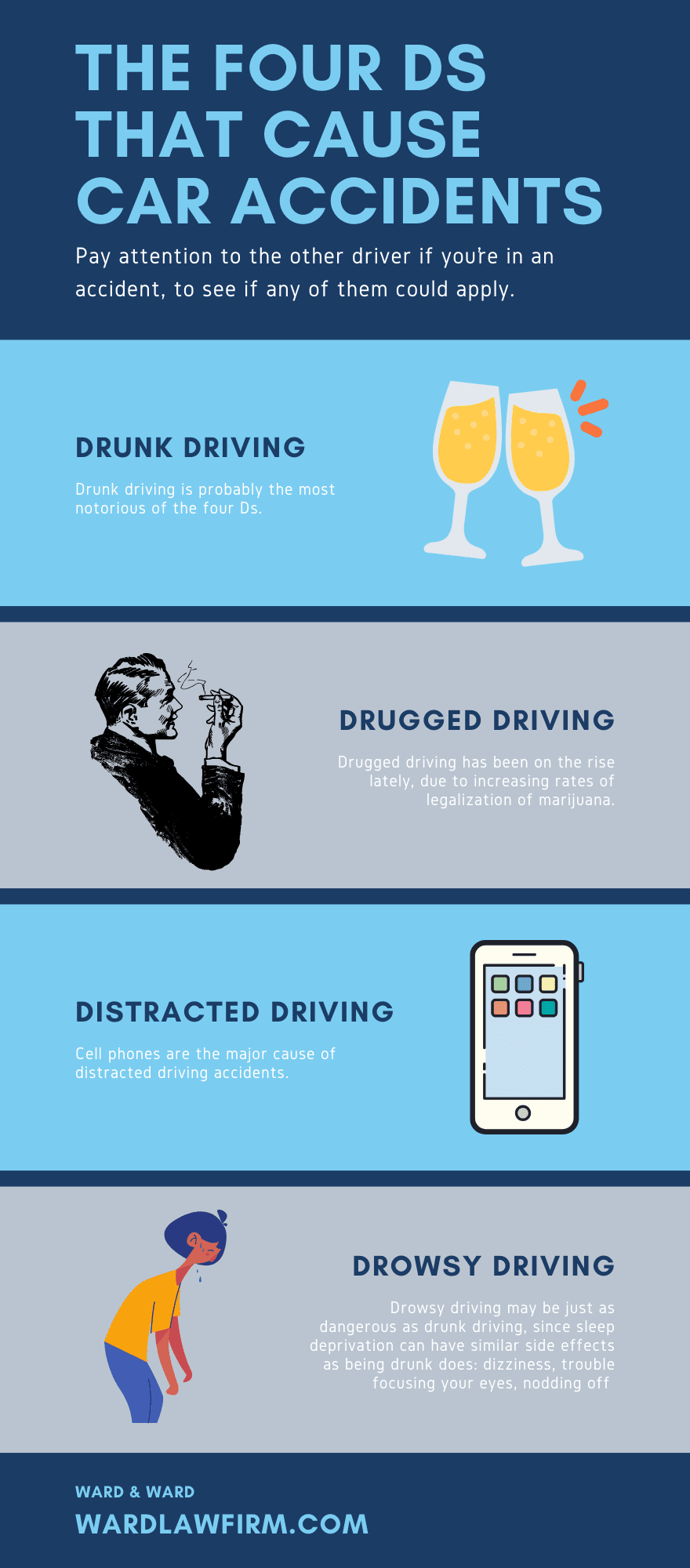
Indianapolis Car Accident Law Statistics
Based on the latest Indiana statistics from City-Data for the most Recent Indiana Crash Report, there were over 205k traffic collisions resulting in injury and property damage in 2022, so 8.3 fatal accidents took place in Indianapolis for every 100,000 people. During this same period, the average number of fatal accidents in the state of Indiana was 18.4.
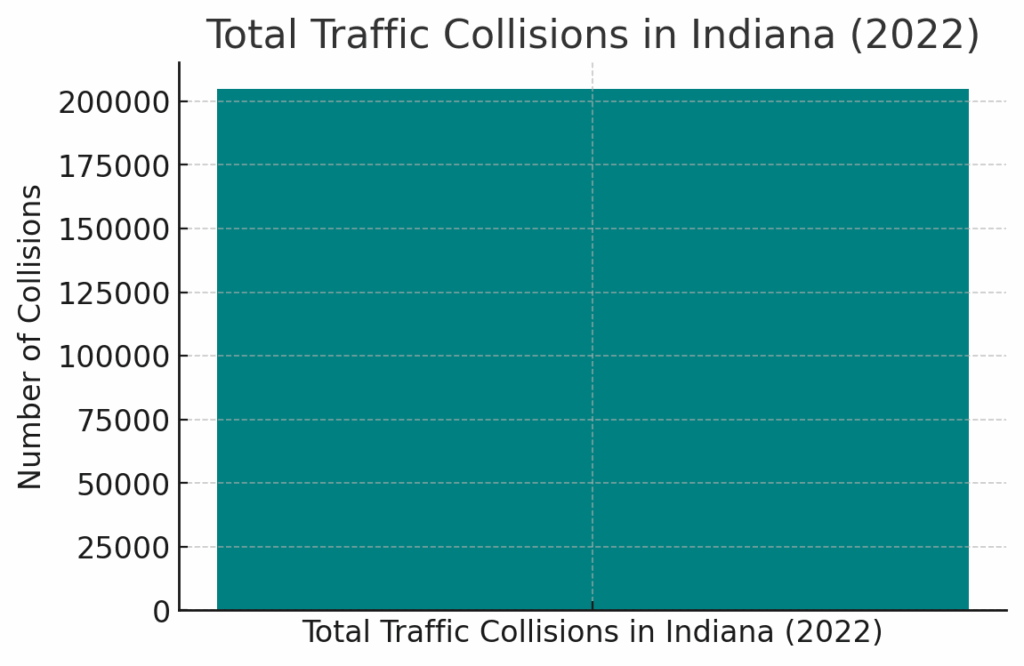
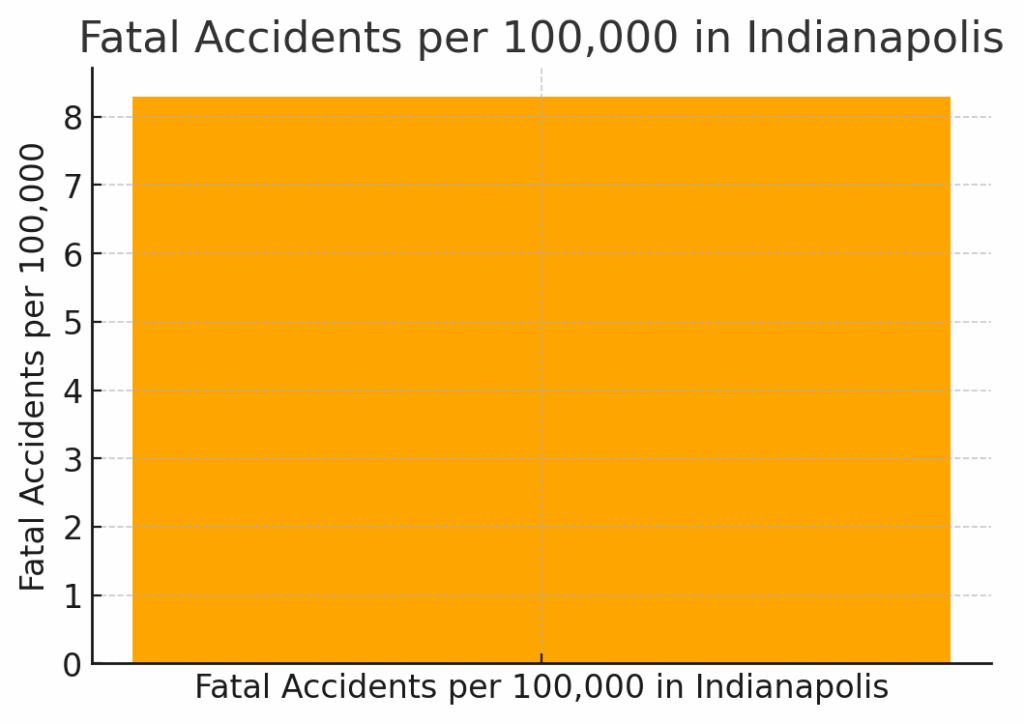
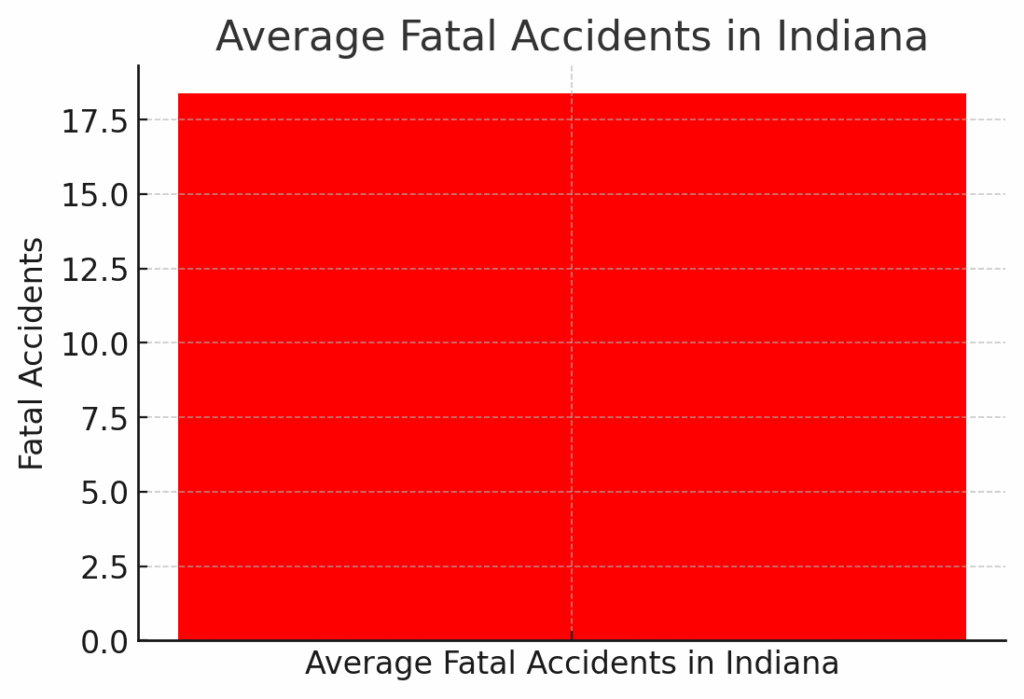
Questions To Ask Your Lawyer
With so many different lawyers out there, you may wonder how to choose the right one. Jotting down your questions is a good start when you are doing your research, and you should do so as soon as possible while the memory is still fresh. The more time that passes after the date of your accident, the more difficult it may be to recall critical information and prove the negligence of the at-fault party.
Your attorney can address all of your questions and concerns. In case you forget a topic, you can just refer to your notes. If you ask certain questions during the consultation, you can find the right lawyer.
Do You Specialize in Car Accident Cases?
Civil lawyers don’t all focus on the same branch of law. Some may have experience handling vehicle accident cases while others handle medical malpractice cases. It’s important to choose a lawyer who has extensive experience handling car accident cases.
What Are the Strengths and Weaknesses in My Case?
Before you pursue a lawsuit, you should find out about all the strengths and weaknesses in your case. Your Indianapolis car accident lawyer should be completely honest with you and tell you if it’s worth taking your case to court. If your lawyer doesn’t think you have a strong case, it may be better to try to settle with the insurance company right now.
How Long Do You Think It Will Take to Resolve My Case?
If you suffered a serious injury in a car accident, your medical bills may be piling up and you wonder when you can return to work again. That’s why you should ask your prospective attorney how long they think it’d take to resolve your case. While this will depend on several different factors, your lawyer should be able to give you a general estimate.
How Can I Improve My Chances of Success in My Case?
Just because you have a lawyer, you can and should still assist in your claim. For you to receive maximum compensation, it’s important to be proactive in your case. Ask your lawyer what you can do to improve your chances of having a successful case. For example, he or she may suggest seeing additional doctors or taking photos of the accident scene.
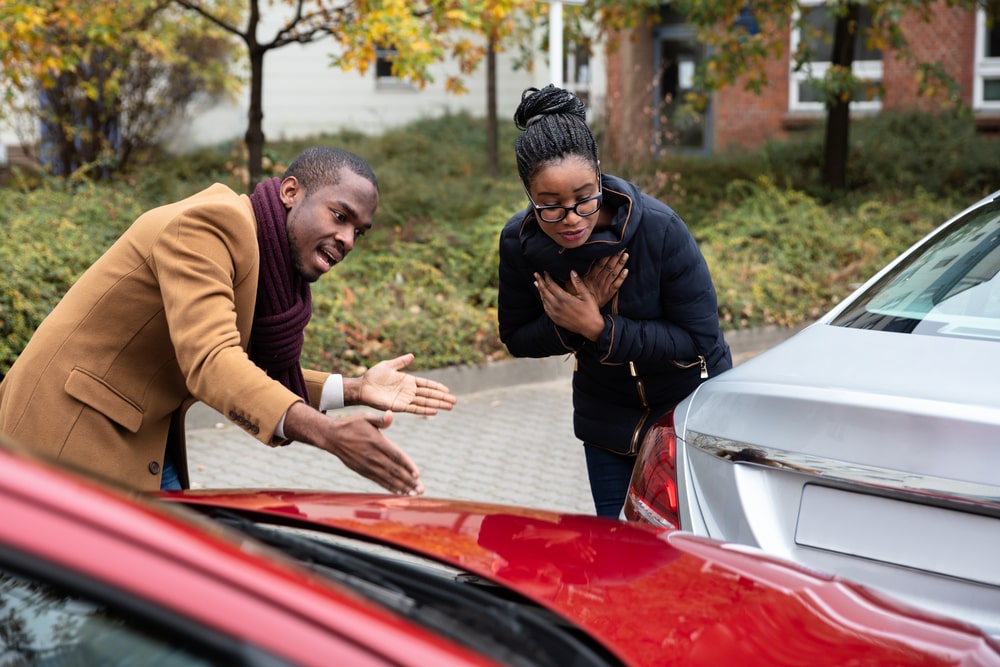
Indianapolis Car Accident Glossary
At Ward & Ward Personal Injury Lawyers, we understand how overwhelming the aftermath of a motor vehicle collision can be. If you’re looking for a car accident lawyer in Indianapolis, Indiana, having a clear understanding of important terms related to your claim can be helpful. This glossary provides straightforward explanations of key terms that may arise after a car accident to help you better navigate the process.
Police Report
A police report is an official document prepared by a responding law enforcement officer after an accident is reported. It includes essential details about the crash, such as the date, time, location, parties involved, vehicle descriptions, and statements from those involved or any witnesses. The report often contains a diagram of the accident scene and initial observations made by the officer. Insurance companies and legal professionals often use this document during the claims process. Requesting a copy of the police report can be done through the local police department or sheriff’s office.
Witness Statement
A witness statement is a recorded or written account provided by an individual who observed the accident but was not directly involved. These statements can describe what the witness saw, heard, or noticed before, during, and after the collision. Witness statements can be vital when establishing the sequence of events. Gathering this information at the scene or shortly afterward ensures that details remain fresh and accurate. These statements may also be used by insurance companies or in court proceedings to support a claim.
Good Samaritan Law
The Good Samaritan Law is a legal principle that protects individuals who voluntarily offer reasonable assistance to those injured in an accident. This protection encourages bystanders to provide aid without fear of legal repercussions for unintended consequences, as long as their actions are in good faith and within reasonable limits. In Indiana, this law applies to people rendering emergency care at the scene and can include actions like calling emergency services or providing basic first aid until professional help arrives.
Medical Documentation
Medical documentation refers to all records related to diagnosis, treatment, and follow-up care after a car accident. This includes emergency room visits, physician notes, imaging studies like X-rays or MRIs, prescriptions, and physical therapy records. These documents are crucial in establishing a connection between the accident and any injuries sustained. Timely and thorough medical documentation can help support a claim for compensation related to medical expenses and future care needs.
Evidence Collection
Evidence collection refers to the process of gathering all materials that can support your car accident claim. This includes photographs of the accident scene, vehicle damage, injuries, weather conditions, and road signs. Video footage, vehicle repair estimates, dashcam recordings, and debris from the accident site can also be part of this process. Gathering evidence as soon as possible after the accident ensures that important details are not lost or overlooked. Comprehensive evidence can help clarify how the accident occurred and strengthen your claim.
If you’ve been involved in a motor vehicle accident, we’re here to help. Contact Ward & Ward Personal Injury Lawyers to schedule a free consultation with our experienced Indianapolis car accident lawyer. Let us assist you through each step of the claims process.
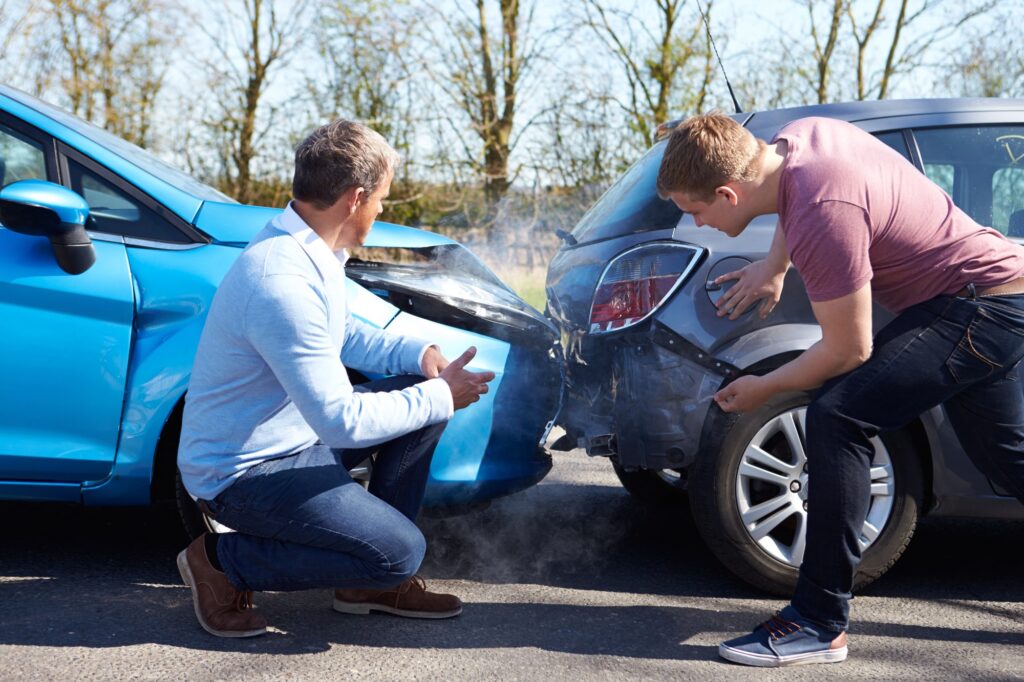
Ward & Ward Personal Injury Lawyers, Indianapolis Car Accident Lawyer
728 S Meridian St, Indianapolis, IN 46225
Contact Our Firm Today
Hiring an experienced lawyer is often not the first thing people think to do after an accident, but it is a necessary step in securing the compensation and repairs that are rightfully yours. Charlie Ward has often said “We protect our clients from the unknown” and that can be some of the best legal help after an accident.
If you have been involved in an accident, contact our legal team at Ward & Ward Personal Injury Lawyers at (317) 639-9501 to explore your legal options with our car accident lawyer in Indianapolis, Indiana. We look forward to speaking with you.
Client Review
“All of my interactions with Charlie Ward have been very good. He is very knowledgeable in his field of expertise. He is personable and practical in his approach to situations and issues.”
Sandra B.



